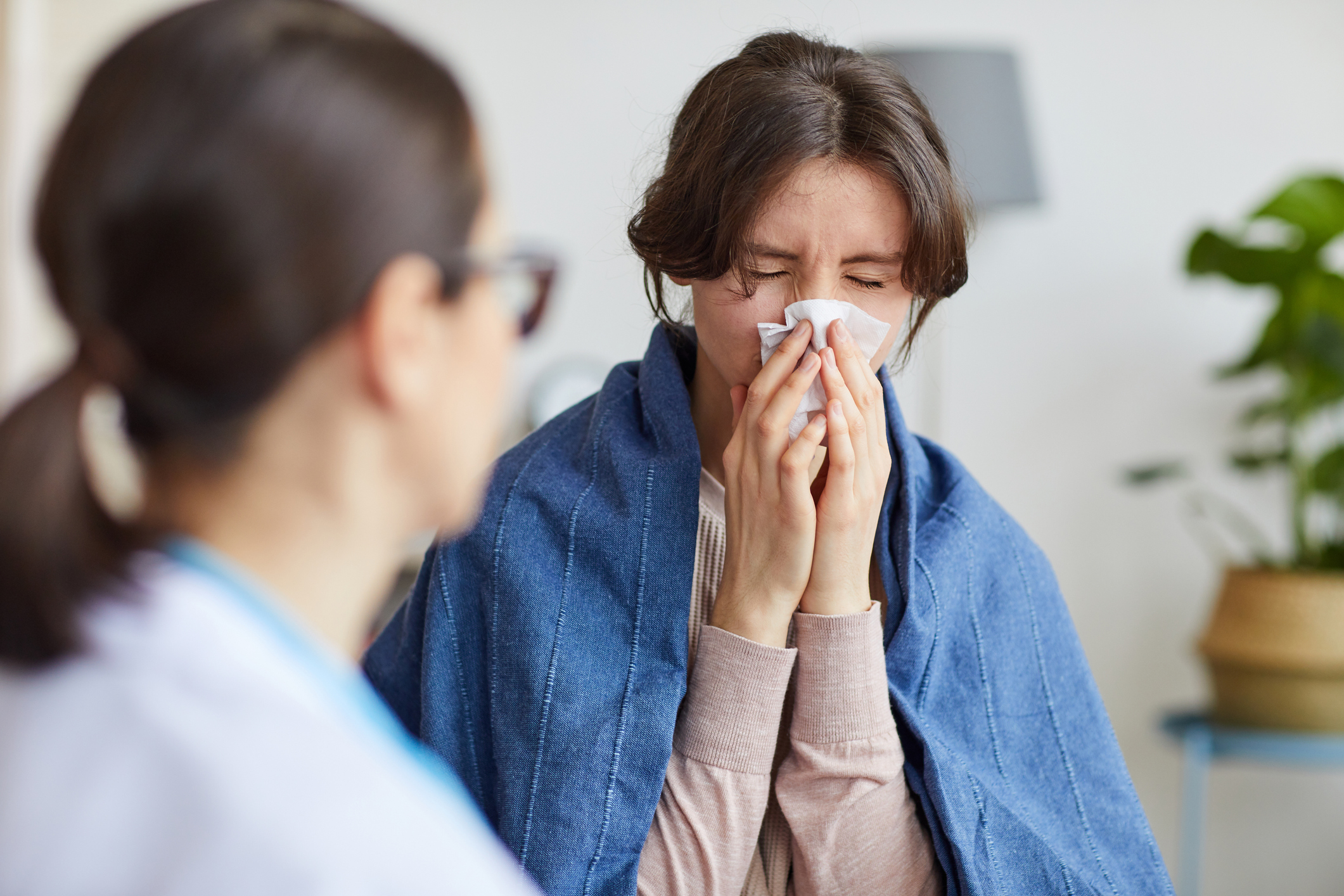Get Easy Health Digest™ in your inbox and don’t miss a thing when you subscribe today. Plus, get the free bonus report, Mother Nature’s Tips, Tricks and Remedies for Cholesterol, Blood Pressure & Blood Sugar as my way of saying welcome to the community!
Colds, COVID-19 and the flu? Here’s the doctor’s secret weapon

You know the mantra for how to avoid getting sick this winter: Wash your hands and wear a mask. And when the days start getting shorter, the temperature drops and cold and flu season kicks in, we could all use an immunity boost, COVID or no COVID. That’s where my favorite secret weapon comes in…
Yes, you’ve probably heard me say it as often as public health officials tell you to wear your mask … but with so much at stake this winter, it bears repeating. But I’ll add another important suggestion: Eat more fruits and vegetables!
Eating lots of fruits and vegetables can improve immunity.
Did you know that our immune systems actually become weaker as we age? It’s one of the reasons COVID has been of greater concern for older individuals.
Luckily eating fruits and vegetables can supercharge our immune responses, regardless of birthdate. For example, in one study researchers found that, as compared to individuals who ate only two servings of fruits and vegetables per day, elderly subjects instructed to eat five servings of fruits and vegetables per day experienced a doubling of their antibody production to the pneumonia vaccine. This didn’t happen after years and years of eating more fruits and vegetables — it happened after ONE MONTH of increased intake.
This is all likely due to the explosive amounts of interesting phytonutrients found in colorful fruits and vegetables. Take broccoli for example. Cruciferous vegetables contain a phytonutrient that activates the aryl hydrocarbon receptor in our intestines. This receptor is critical to promoting intestinal immune function.
Boosting your immune system in the right way
Eat a broad variety of plant-based foods, and make sure you’re choosing foods in each color group. When I go shopping, in person or online, I challenge myself to throw at least one or two new fruits or vegetables (or at least something I haven’t had recently) in my cart. Even foods within the same color group can deliver different phytonutrients. Tomatoes and apples might both be red, but they supply different plant-based chemicals with different antioxidant properties.
If the idea of eating a rainbow seems overwhelming or if you’re worried you’re not getting enough of a specific nutrient, here are the ones to focus on since these are often lacking in American diets, along with the recommended daily amounts (RDA) needed and some surprising foods to find them in (yes, once again I’m describing the Mediterranean diet):
- Vitamin A — 900 ug/day (slightly less for women) Half a cup of baked sweet potato or a cup of raw carrots.
- Vitamin C — 90 mg/day (again slightly less for women, or up to 200 mg to help ward off colds). One kiwifruit or one cup of strawberries. Or munch an entire medium sweet red pepper for 150 mg!
- Vitamin D — 800 IU/day (or more). You can get that from 7 ounces of pink salmon or a pound of sardines. That’s a lot of fish, even for fish lovers! So, head outside for 10 to 30 minutes of midday sun exposure instead (or in addition!)
- Vitamin E — 15 mg/day 2 ounces of almonds or sunflower seeds.
- Omega 3 — 2 servings of oily fish per week. Think salmon and sardines again! If you’re not much of a fish eater, eat plenty of nuts and seeds — especially walnuts, flax and chia.
It’s tempting, of course, to read this list and pop a multivitamin instead. But there’s little evidence that multivitamins are helpful. So, if you like the idea of a one-stop-shop to boost immunity, whirl up a smoothie using a bunch of fruits, vegetables, nuts and seeds (just make sure to use a blender that can pulverize the whole fruit — you want to make sure you’re eating all of it, not just the juice). Or simply mix up Step One Food’s Strawberry Banana version.












